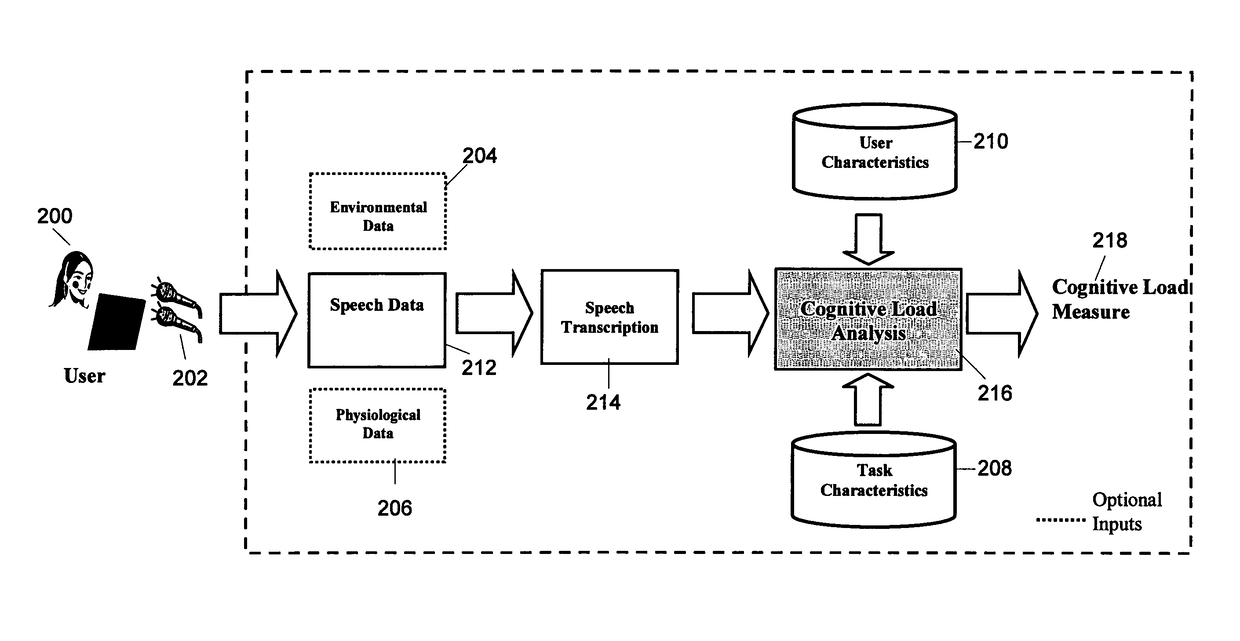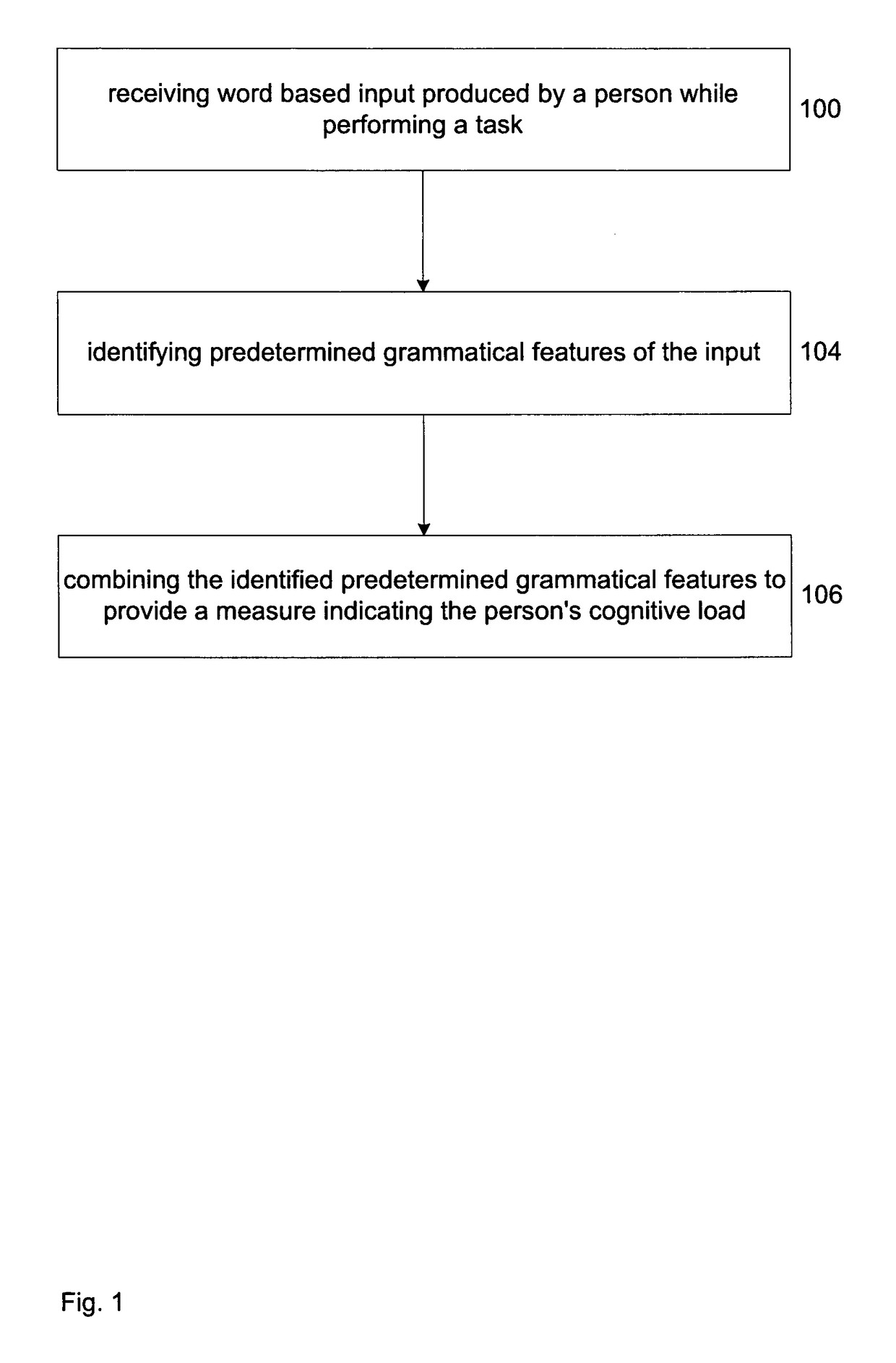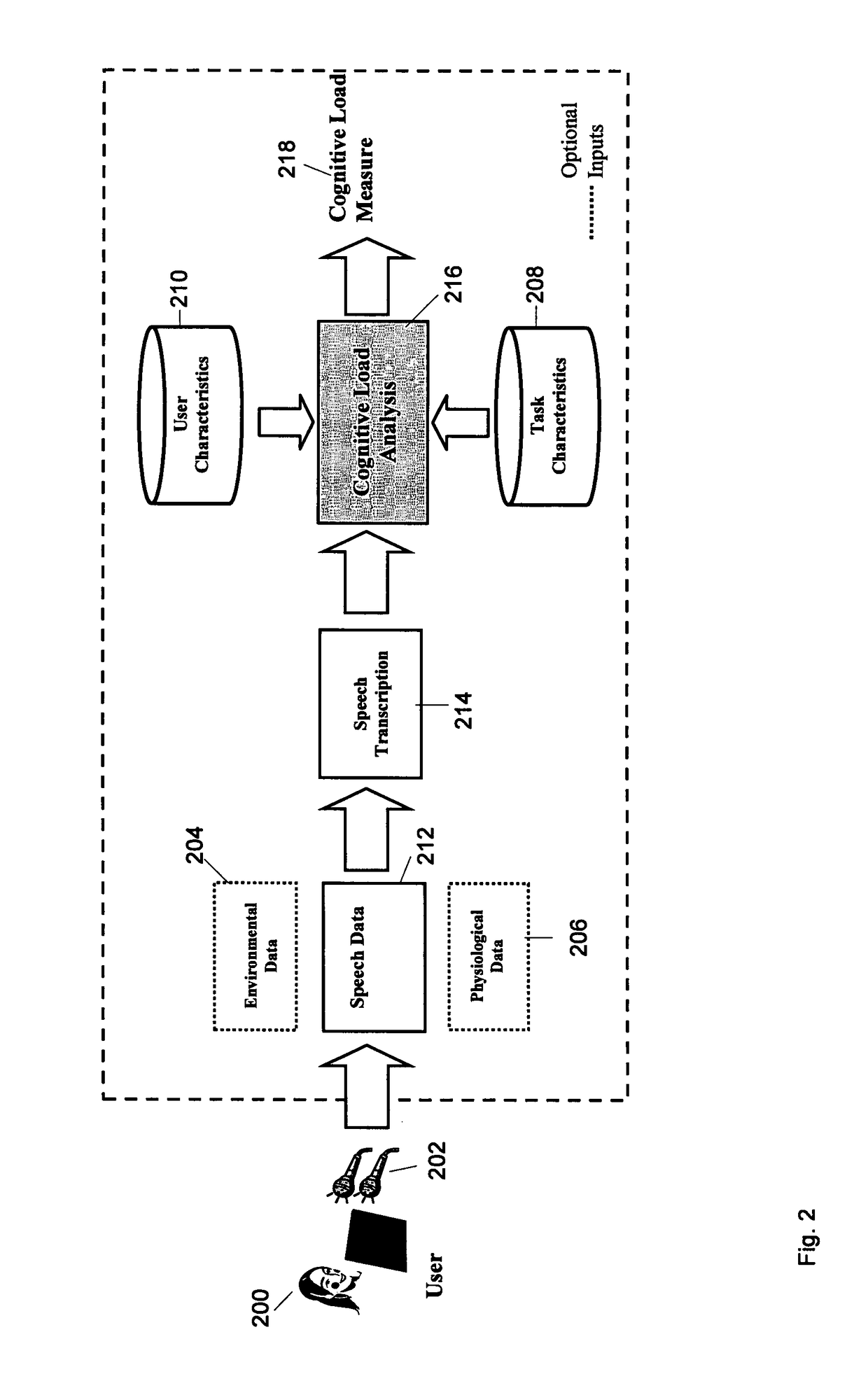Measuring cognitive load
a cognitive load and measurement method technology, applied in the field of measuring cognitive load, can solve the problems of unreliable data quality, affecting the normal flow of performing tasks, and affecting the accuracy of cognitive load measurement, so as to achieve more accurate cognitive load measurement
- Summary
- Abstract
- Description
- Claims
- Application Information
AI Technical Summary
Benefits of technology
Problems solved by technology
Method used
Image
Examples
Embodiment Construction
[0047]In complex, data-intense situations, users can experience high levels of cognitive load. This can interfere with their ability to complete a task and also adversely affect their performance of the task.
[0048]The intelligent user interface system of this example, which is aware of the user's changes in cognitive load can alleviate this problem by implementing output strategies to modulate the pace, content, and format of the output interaction in real-time and / or by determining the resources needed by the user to complete the task effectively and efficiently. The interface is aware of the user's cognitive load based on an assessment of the grammatical features of the user's speech input. This is to be contrasted with acoustic and phonetic features of the user's speech input.
[0049]The method of measuring the user's cognitive load from which these output strategies will be based will now be described with reference to FIGS. 1 and 2. This example relates to on-line distance educat...
PUM
 Login to View More
Login to View More Abstract
Description
Claims
Application Information
 Login to View More
Login to View More - R&D
- Intellectual Property
- Life Sciences
- Materials
- Tech Scout
- Unparalleled Data Quality
- Higher Quality Content
- 60% Fewer Hallucinations
Browse by: Latest US Patents, China's latest patents, Technical Efficacy Thesaurus, Application Domain, Technology Topic, Popular Technical Reports.
© 2025 PatSnap. All rights reserved.Legal|Privacy policy|Modern Slavery Act Transparency Statement|Sitemap|About US| Contact US: help@patsnap.com



